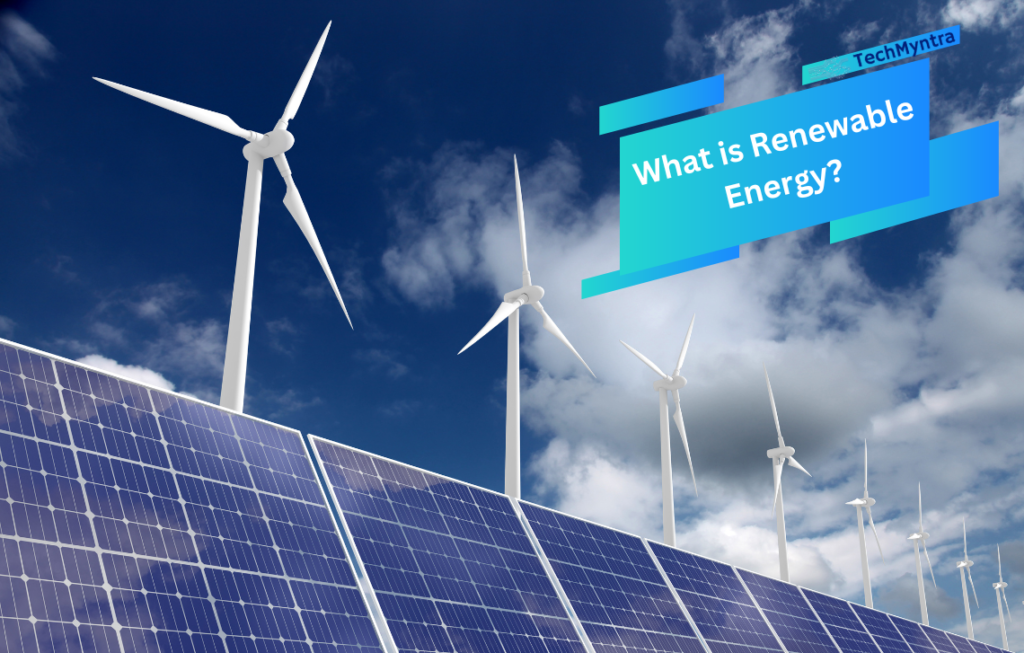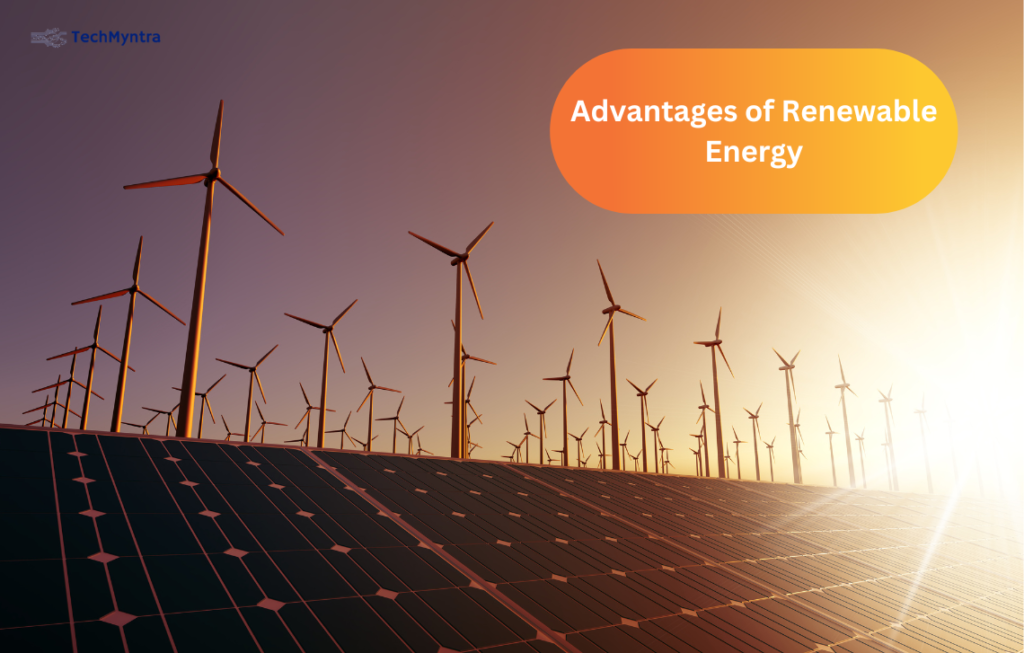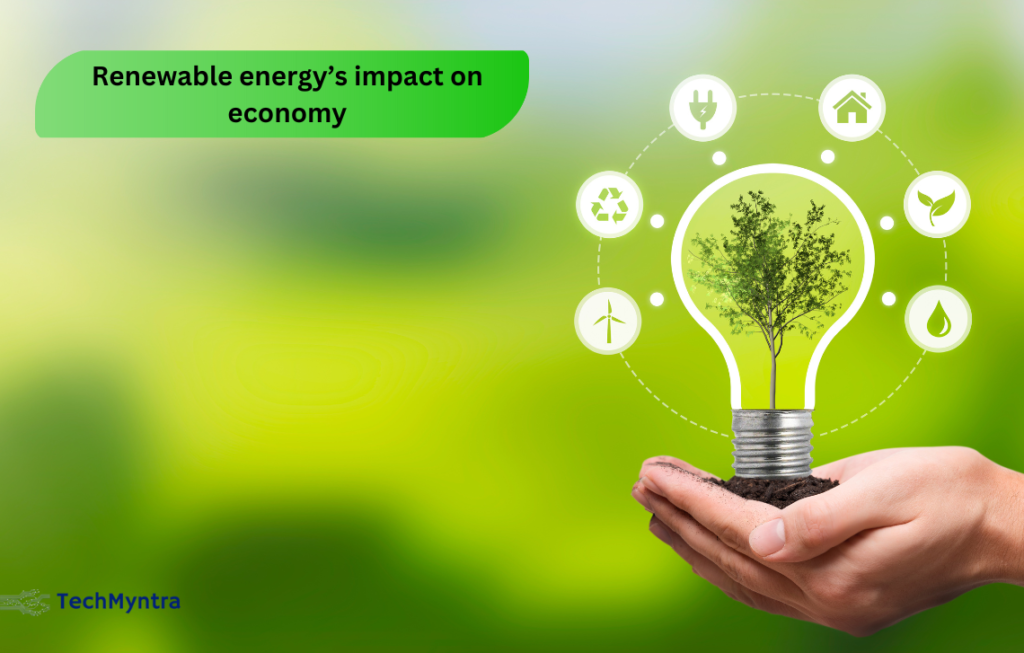Renewable energy has been gaining a lot of attention in recent years, and for good reason. It offers a sustainable way to power our world without depleting our natural resources. In this article, we will discuss what renewable energy is and its advantages.
Table of Contents
What is Renewable Energy?
Renewable energy is energy that comes from sources that naturally replenish themselves over time. Unlike fossil fuels, which take millions of years to form and are limited in supply, renewable energy sources can be replenished in a matter of days, weeks, or months.
There are many types of renewable energy sources, including solar power, wind power, hydropower, geothermal power, and biomass. Each of these sources has unique characteristics that make it suitable for different applications.

Renewable energy is a key component of a sustainable future. As the world population continues to grow, so does our energy demand. By using renewable energy sources, we can meet this demand without compromising the health of our planet.
One of the most significant advantages of renewable energy is its ability to reduce our dependence on fossil fuels. Fossil fuels, such as coal, oil, and natural gas, are finite resources that will eventually run out. In addition, the extraction and use of fossil fuels contribute to a wide range of environmental problems, including air and water pollution, climate change, and ecosystem destruction. By using renewable energy, we can reduce our dependence on these finite resources and transition to a more sustainable future.
Renewable energy also has the potential to create a more resilient energy system. Traditional power plants are vulnerable to disruptions from natural disasters, such as hurricanes, earthquakes, and wildfires. In contrast, renewable energy systems, such as solar panels and wind turbines, are distributed and can be located closer to where the energy is needed. This means that renewable energy systems are less vulnerable to disruptions and can provide a more reliable source of energy.
Another advantage of renewable energy is its potential to reduce energy poverty. Millions of people around the world lack access to reliable electricity, particularly in rural areas of developing countries. Renewable energy technologies, such as off-grid solar panels and small-scale wind turbines, can provide a sustainable source of electricity to these communities. This can improve living standards, support economic development, and promote social equality.
In addition to these benefits, renewable energy can also help to create a more sustainable economy. By investing in renewable energy, we can create new industries, create jobs, and spur innovation. This can help to stimulate economic growth and support the transition to a more sustainable future.
Advantages of Renewable Energy

Reduced Carbon Footprint
One of the most significant advantages of renewable energy is that it produces little to no greenhouse gas emissions. Fossil fuels, on the other hand, are a major contributor to climate change. By using renewable energy, we can reduce our carbon footprint and help slow the effects of climate change.
Energy Security
Renewable energy sources are not subject to the same supply constraints as fossil fuels. While fossil fuel reserves are finite and located in specific regions of the world, renewable energy sources are available everywhere. This means that countries can become more energy independent by relying on their own renewable energy sources.
Cost-Effective
Renewable energy has become increasingly cost-effective in recent years, making it a more attractive option for businesses and consumers alike. The cost of solar panels, wind turbines, and other renewable energy technologies has fallen significantly, making them more accessible to a wider range of people.
Job Creation
Renewable energy is a rapidly growing industry that has the potential to create millions of jobs around the world. The renewable energy sector requires a wide range of skills, from engineers and technicians to sales and marketing professionals. As the industry continues to grow, it will create even more job opportunities.
Improved Public Health
Fossil fuel combustion is a significant source of air pollution, which can lead to respiratory and cardiovascular health problems. By using renewable energy sources, we can reduce our exposure to harmful pollutants and improve public health.
Renewable energy’s impact on economy
Renewable energy is having a significant impact on the economy, both domestically and globally. As countries transition to a low-carbon economy, renewable energy is becoming an increasingly important driver of economic growth and job creation. In this article, we will explore the impact of renewable energy on the economy.

Job Creation
Renewable energy is a rapidly growing industry, and as a result, it is creating jobs at a faster rate than many other sectors. In the United States alone, employment in the solar and wind industries has grown by over 150% since 2010, creating tens of thousands of new jobs. Globally, the renewable energy sector employs over 11 million people, and this number is expected to continue to grow.
Investment
As the renewable energy sector has grown, so too has the amount of investment flowing into the industry. In 2020, global investment in renewable energy reached a record high of $303.5 billion. This investment is being used to fund new renewable energy projects, such as wind farms, solar power plants, and hydroelectric facilities, as well as research and development of new renewable energy technologies.
Reduced Energy Costs
Renewable energy has become increasingly cost-competitive with traditional fossil fuel sources. In some regions, renewable energy is already cheaper than fossil fuels, and this trend is expected to continue as renewable energy technology continues to improve and economies of scale are achieved. As a result, businesses and consumers are benefiting from lower energy costs, which can have a positive impact on the economy.
Energy Security
Renewable energy can also enhance energy security by reducing a country’s dependence on imported fossil fuels. By investing in domestic renewable energy resources, countries can become more energy independent, reducing the impact of volatile energy prices and supply disruptions.
Environmental Benefits
In addition to the economic benefits of renewable energy, there are also significant environmental benefits. By reducing greenhouse gas emissions and air pollution, renewable energy can improve public health, reduce healthcare costs, and protect natural resources, such as water and land.
Conclusion
Renewable energy offers a sustainable way to power our world without depleting our natural resources. Its advantages include reduced carbon footprint, energy security, cost-effectiveness, job creation, and improved public health. By investing in renewable energy, we can create a brighter future for ourselves and for generations to come.













